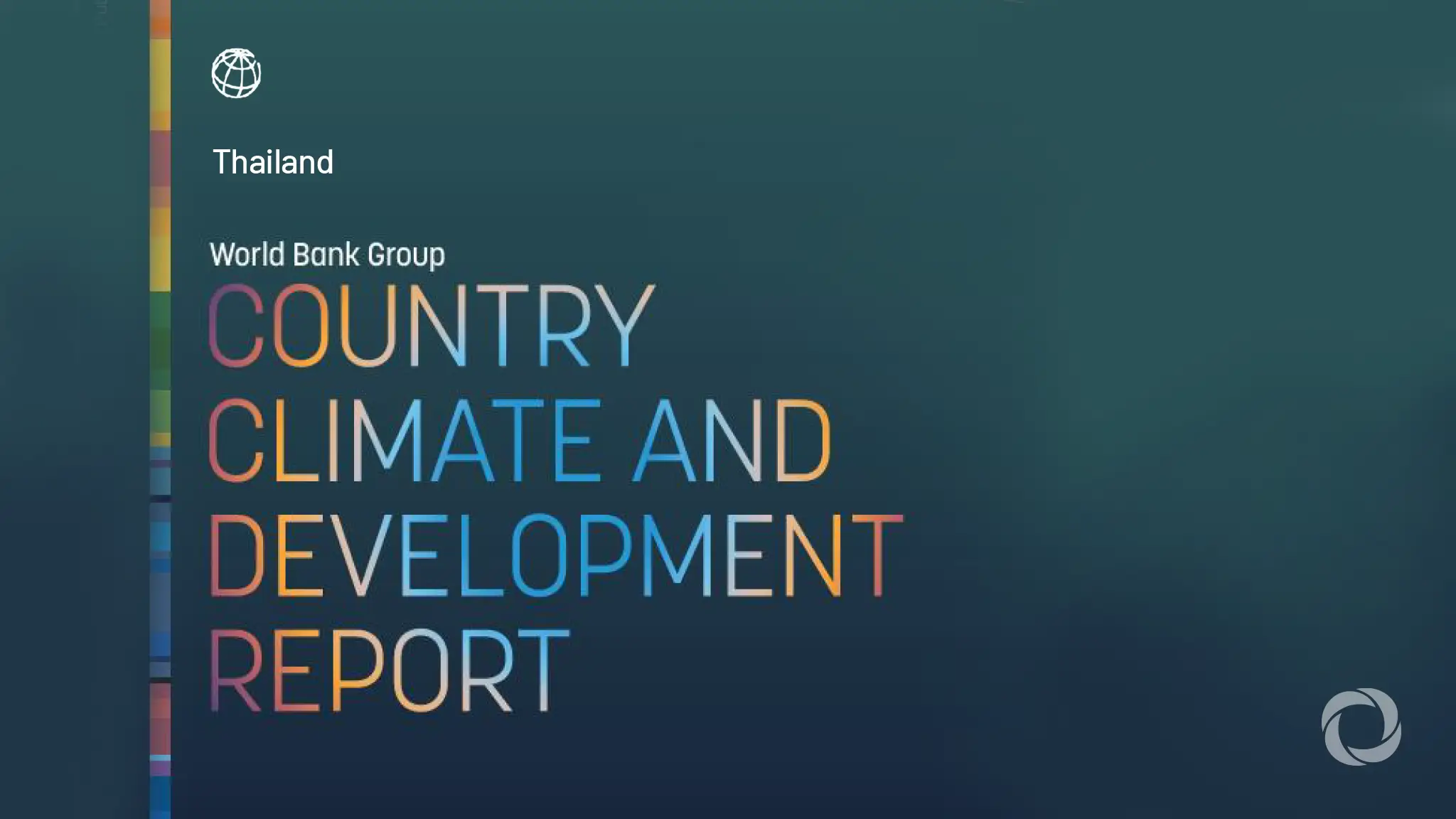Thailand could become a high-income country by investing in climate-smart development, but faces serious economic risks if it doesn’t adapt to climate change, the World Bank said in a new Country Climate and Development Report. Without better flood defenses and climate adaptation, the country could lose 7-14% of its GDP by 2050 due to extreme weather damage. But smart investments in green technology and climate resilience could boost annual GDP by 2-3% by 2040 and 4-5% by 2050.
Thailand needs $219 billion in climate investments over the next 25 years to meet its goals. The country already leads in some green exports but has much more potential to tap into growing global demand for clean technology.
Thailand is already one of the world’s ten most flood-prone countries, with the Chao Phraya basin particularly vulnerable. This region houses 40% of the population and generates 66% of the country’s GDP. Climate change will make water shortages worse in key farming areas and industrial zones like the Eastern Economic Corridor. Coastal erosion already affects 30% of Thailand’s coastline and could cost the tourism industry $1 billion yearly by the mid-2040s. Heat waves will hurt worker productivity across major sectors. The country also faces growing pressure to cut emissions while maintaining economic growth.
World Bank Division Director Melinda Good said “Thailand’s future competitiveness will hinge on reducing the emission intensity of its economy and shifting production toward greener goods and services.” The report shows Thailand already exports eco-friendly air conditioners, supplies about 4% of global solar panel exports, and is growing as an electric vehicle production hub. But green products make up less than 10% of total exports. Actions to remove trade barriers, cut harmful subsidies, build worker skills, and boost domestic innovation could increase green exports by 2-3% of GDP by 2030.
The World Bank’s Kim Alan Edwards said investments in “flood mitigation, water security, coastal protection, climate-smart agriculture, and cooling” could raise GDP while protecting people from extreme weather. Thailand can fund this through carbon pricing, tax reforms, and private investment. The report is part of the Bank’s “Building Thailand’s Future Today” initiative ahead of the 2026 IMF-World Bank meetings in Bangkok. This shows how countries can turn climate challenges into economic opportunities while building resilience against future disasters.

